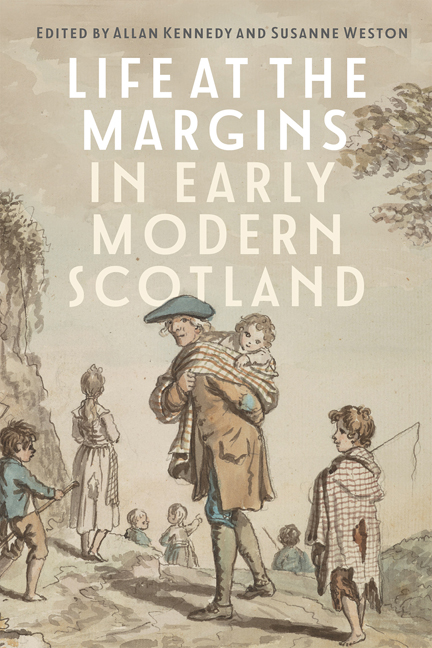1 - Disability and the Domestic Sphere in Early Modern Scotland
Published online by Cambridge University Press: 08 May 2024
Summary
The domestic sphere was the basis of early modern Scottish society. It was the place where a person ate, drank, worked, prayed, and slept. To complete the ordinary tasks of living, members of the household negotiated the space of the house and the surrounding area. The heads of the household, usually a husband and wife, held responsibility for their dependants, including the provision of care, which fell mostly to the housewife to accomplish. Depending on the wealth and needs of the household, dependants could comprise children, servants, animals, or all three. It was where people lived, including people with disabilities.
Discussions of disability have influenced British historical studies from at least the 1990s. Since then, disability historians have worked to bring people with disabilities into the historical narrative. A large amount of the resulting disability history focuses on the nineteenth century with its increased documentation and urbanisation. Scholars have looked earlier, however, using creativity and a variety of sources to find a relatively hidden portion of a population. For example, monster studies has been used to make sense of the historical position of the disabled. These scholars are careful to emphasise that using this lens is not intended to conflate the categories of ‘disabled’ and ‘monster’. Rather, they contend that disability can be found encoded in descriptions of the monstrous in pre-modern Western Europe.
In Scotland, there are at present two major strands of early modern disability history. One is the care of those with disabilities. Christopher Langley devotes a chapter to disability in his Cultures of Care, exploring the interactions between ecclesiastical institutions and parishioners with disabilities during the seventeenth century. Langley looks at informal networks of care, but the construction of devoted sick hospitals and institutions in the late eighteenth century encouraged more formal care of those with disabilities. In his seminal book on madness, Rab Houston discusses this development, but also notes that studying disability helps scholars to understand how early modern Scottish people defined their own mental world in relation to those they deemed mentally incapable. This argument points to the second strand within Scottish disability studies, which highlights early modern and Enlightenment philosophical writing and its use of disability to help define what it is to be human.
- Type
- Chapter
- Information
- Life at the Margins in Early Modern Scotland , pp. 17 - 31Publisher: Boydell & BrewerPrint publication year: 2024

